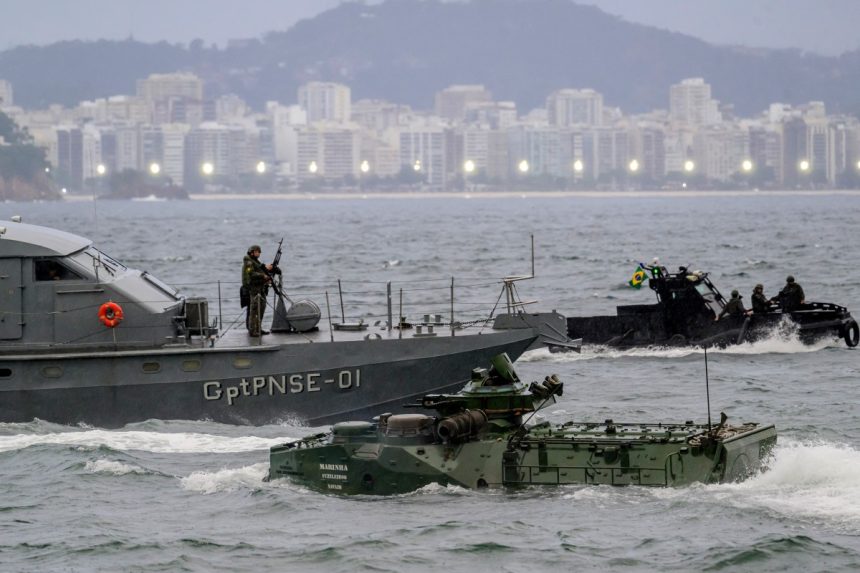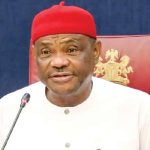Leaders of the BRICS nations are convening in Rio de Janeiro this week for a pivotal summit poised to challenge the escalating trade tensions ignited by former US President Donald Trump’s aggressive tariff policies. The summit, scheduled to begin Sunday, brings together emerging economies representing nearly half of the world’s population and 40% of global economic output.
Diplomatic insiders familiar with the summit’s behind-the-scenes discussions indicate that these nations—Brazil, Russia, India, China, and South Africa—are prepared to collectively denounce what they deem as unfair US trade practices, particularly the imposition of steep import tariffs. The group is reportedly drafting a joint statement that will condemn the rising tide of global economic uncertainty sparked by Washington’s trade actions.
While the summit declaration is unlikely to name the United States or Trump directly, its message is expected to send a pointed signal to Washington’s doorstep. Analysts suggest that the final document will carefully sidestep any explicit mention of America, reflecting the bloc’s cautious diplomatic approach, particularly in light of China’s ongoing negotiations with Washington to ease bilateral trade frictions.
Marta Fernandez, director of the BRICS Policy Center in Rio, noted, “The tone will be measured. It’s unlikely the summit declaration will explicitly mention the US, given the delicate timing for China, which just reached a fragile trade truce with Washington.”
China’s Xi Jinping and Russia’s Putin Absent, Casting Shadow Over BRICS Unity
However, the summit’s impact may be tempered by the absence of key figures. Chinese President Xi Jinping, a regular fixture at BRICS gatherings for over a decade, will be notably absent from this year’s meeting. His absence has already fueled speculation about the internal dynamics within the bloc.
Experts suggest that Xi’s decision to skip the summit could be influenced by several factors. Ryan Hass, a former China director at the US National Security Council, remarked that Xi may be avoiding any scenario where he appears upstaged, particularly since Indian Prime Minister Narendra Modi is expected to receive a high-profile welcome from Brazil, including a state luncheon.
Additionally, Xi’s absence follows his recent high-profile talks with Brazilian President Luiz Inacio Lula da Silva in Beijing, leading some observers to believe that China may not see the need for further in-person diplomacy at this juncture. Chinese Premier Li Qiang will represent Beijing at the summit in Xi’s place.
Russia’s President Vladimir Putin, facing international arrest warrants over alleged war crimes, will also skip the summit physically but is scheduled to participate via video link. These absences, especially from two of the bloc’s largest economies, present a challenge to Brazil’s ambitions for a globally impactful summit.
Host President Lula has been working hard to position Brazil as a diplomatic powerhouse on the global stage. In the lead-up to the country’s high-stakes 2026 presidential elections, Brazil is set to host a series of major international events, including the G20 summit and the COP30 climate conference.
Middle East Conflicts Threaten BRICS Unity
Beyond trade disputes, the BRICS summit faces another thorny issue: deep divisions over the wars in the Middle East.
Iranian President Masoud Pezeshkian, whose country recently emerged from a violent 12-day conflict with Israel, will not attend the summit in person. However, Iranian negotiators are pressing for BRICS to adopt a stronger stance on the Gaza conflict and the broader tensions between Iran and Israel.
While some members advocate for a neutral call for peace and dialogue, Iran is pushing for tougher language supporting Palestinian statehood and stronger opposition to Israeli military actions. These differing positions are causing significant friction among members, threatening the bloc’s ability to present a unified front on geopolitical issues.
Artificial intelligence and global health initiatives will also feature prominently on the summit’s agenda as BRICS seeks to broaden its influence beyond trade and security matters.
With newer members such as Saudi Arabia, the UAE, Egypt, Iran, Ethiopia, and Indonesia now in the fold, BRICS has expanded its global reach. However, this expansion has also intensified internal disagreements, making consensus-building increasingly difficult.
Brazilian Foreign Minister Mauro Vieira remains hopeful, stating, “Throughout its history, BRICS has been able to speak with one voice on global issues. There is no reason we cannot do so again, including on the Middle East.”
As the summit unfolds, the world will be watching closely to see whether BRICS can overcome its internal divides and emerge as a stronger force in global politics.










